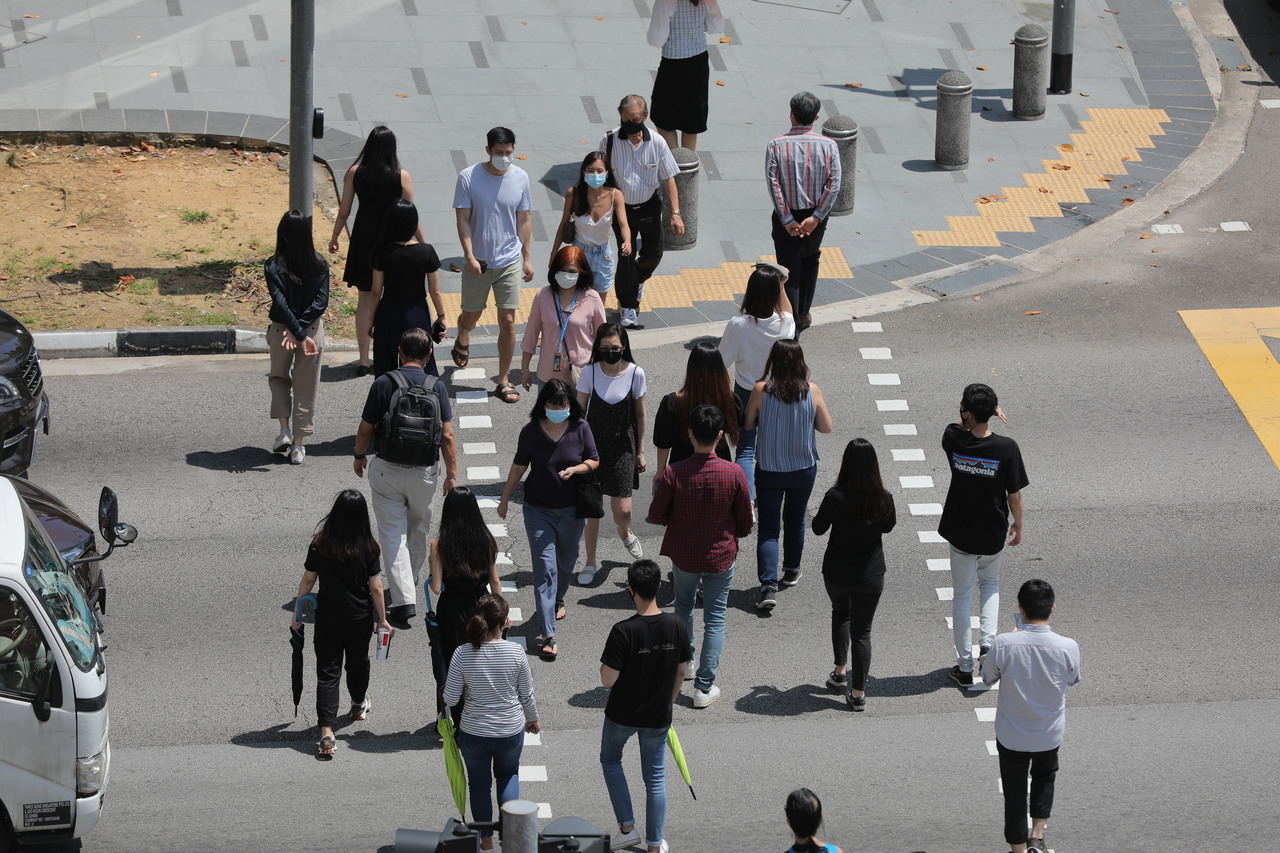No Covid-19 cases in community and dorms for 13 days in S'pore, but complacency must not set in: Experts
Sign up now: Get ST's newsletters delivered to your inbox

Although local cases seem to be tapering off, experts cautioned that local, undetected cases may still be lurking.
ST PHOTO: ONG WEE JIN
SINGAPORE - For the past 13 days, there have been zero Covid-19 cases from the dormitories and the community, marking the longest stretch without local cases in Singapore since the coronavirus outbreak in January this year.
Although infectious diseases experts say this indicates Singapore's success in containing the virus amid soaring and resurging cases in other parts of the world, they stress that it is not time to get complacent, as the pandemic is not over in the country.
Since Nov 1, there have been fewer locally transmitted cases, with two from the community and five from the dorms on Nov 3, 4, 5 and 10.
Although local cases seem to be tapering off, the experts cautioned that local, undetected cases may still be lurking.
"Getting zero cases does not mean we have reached zero infections. It's also probably the case that there are more infections than cases, where some infections are not detected," said Associate Professor Alex Cook, vice-dean of research at the National University of Singapore's Saw Swee Hock School of Public Health.
The school's dean, Professor Teo Yik Ying, added: "There could still be a very small number of undetected asymptomatic or mildly symptomatic cases that are circulating within the community, that may seed further community cases.
"Unless there is widespread and routine testing like what we do for migrant workers living in dormitories, it will be difficult to identify asymptomatic cases in the community."
Also, with imported cases trailing in each day, the chances of imported infections seeping into the community still exists, said the experts.
Since Nov 1, the country has mostly seen imported cases numbering in the single digits daily, with the highest being 18 on Nov 11.
"Even with 14 days of strict quarantine and an exit test, a small percentage of infected travellers will pass undetected. That is why I don't get too excited about reaching zero cases - there's always a risk of spillover from importations," said Prof Cook.
Some who get infected shortly before flying into Singapore will have a long incubation or latent period before the virus manifests itself, and that causes them to test negative on their exit swab at the end of their quarantine, he added.
"Most imported cases will be detected, either manifesting symptoms while on quarantine or testing positive at exit, but a small fraction will not be," Prof Cook said.
Some risk still remains for Changi Airport staff, like swab assistants, who come into close contact with passengers. Last month, two workers at the airport's Terminal 3 contracted Covid-19.
Since late last month, airport staff who interact with passengers are tested every two weeks, and don full personal protective equipment at work.
The experts said imported cases may rise during the festive seasons between December and February, and as more students studying abroad return home during the winter break.
"We will see more imported cases if more people are returning from Europe and the Americas," said Professor Dale Fisher from the NUS Yong Loo Lin School of Medicine.
But the chances of them spreading Covid-19 to the community are slim, as Singapore frequently updates its border control measures and stay-home notice (SHN) policies based on changes in the coronavirus situations abroad.
From this month, all travellers from Estonia, Norway, Malaysia and Japan must serve their 14-day SHN at dedicated facilities owing to a resurgence of cases in the countries. Previously, eligible travellers could complete their SHN in their homes, while travellers from Malaysia, except Sabah, could do serve their seven-day SHN at their homes.
At the dorms, experts attribute the turnaround to such measures as fortnightly testing of the migrant workers to ring-fence cases, movement restrictions and reducing the density of workers in each dorm.
"The longer that comprehensive disease surveillance is conducted without detecting new cases, the more likely that this means a reduction in cryptic cases in the dorms," said Professor Gavin Smith, interim director of the Emerging Infectious Diseases Programme at Duke-NUS Medical School.
Prof Cook hopes restrictions will ease a bit more so that migrant workers can socialise with friends in the current social gathering limits of five people, and improve their mental well-being.
Since Oct 31, eligible migrant workers can visit recreation centres on their rest days at staggered times to buy necessities, get a haircut and remit money home.
With no cases in the community or dorms for nearly two weeks, what is Singapore's current target in controlling Covid-19?
"Singapore's spell of zero community cases shows it is not a pipe dream but attainable and sustainable," said Prof Teo.
But maintaining zero cases must be balanced with economic growth and safe resumption of social activities, experts said.
"Zero cases is fantastic but we should not have zero tolerance for cases," said Prof Fisher. "Singapore is leading the way in nuancing its border restrictions to lessen the social and economic impacts and I think the health risks are very small and manageable," he added.


